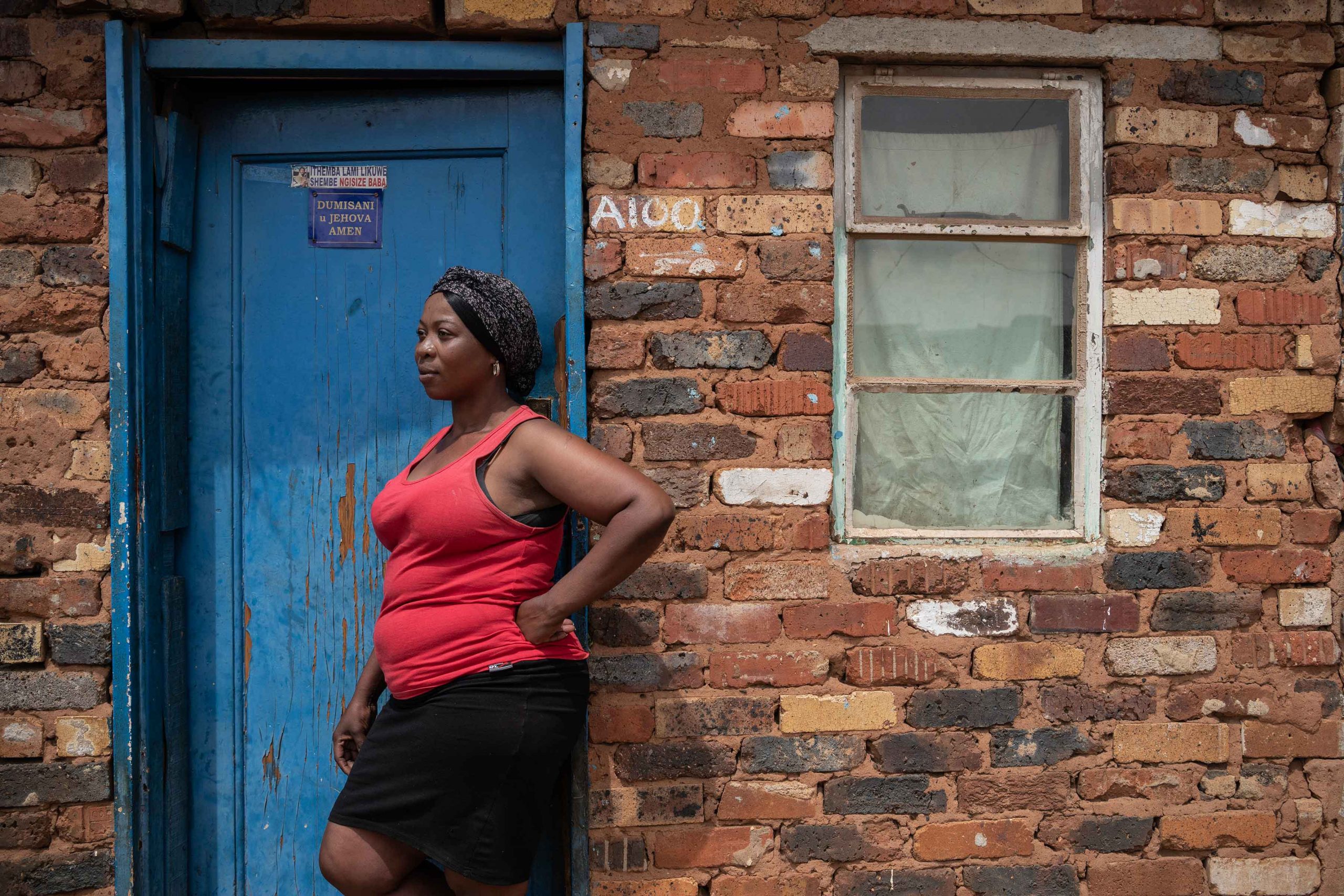Spotlight on gender-based violence in Makause
The East Rand shack settlement has seen an escalation in violent crime against women and children in the past several months as they deal with overcrowded living conditions and poor policing.
Author:
4 November 2019

Located in the mining belt of Johannesburg’s East Rand, the Makause shack settlement has a population of more than 15 000 residents. Recently, it has seen a concerning escalation in crimes against women and children.
The township’s peaking levels of gender-based violence prompted the Commission for Gender Equality (CGE) to launch an inquiry at the end of August into the plight of women in Makause. The focus was on crimes that, if reported, are often withdrawn. These include domestic violence, child neglect, rape and murder.
On any given day, you are bound to find a number of women washing clothes in the cramped shack settlement. There are up to 15 shacks in some yards and the residents share one chemical toilet, exposing them to sanitation issues.

“Crime often takes place over the weekend because people have been drinking and taverns here close late. When we wake up, people have been murdered,” says 33-year-old resident Cindy Ndlovu.
There is no electricity in Makause, which makes it difficult to navigate in the dark. The train station is a 15-minute walk away and many prefer to walk there rather than take a taxi.
Queuing in the dark
The shack settlement had only two municipal taps in August 2018. At least five additional taps have been installed this year, but residents still have to start queuing for water as early as 4am, says Ndlovu, commenting on how dangerous it is in the dark.
Just two weeks ago, a man was beaten to death. “He was going to fetch water, but he did not make it back. Some boys wanted phones,” she says.
Ndlovu says child neglect is a concerning issue. She explains how alcohol dependence interferes with good parenting, adding that children often go missing. In one instance, a two-year-old was found searching for his home. He could not remember where he lived or who his mother was.

Lindiwe Mngomezulu, 36, has four children. She met her former partner, the father of two of her children, when she finished school. He abused and raped her before moving back to KwaZulu-Natal. “He would go and drink alcohol … He would abuse me, he would tell me he would kill me, he would beat me and he would force me to have sex with him,” she says.
She did not take any action or press charges against this man, despite his criminal behaviour, because he threatened her. “He told me that if I got him arrested, I must make sure the police do not release him or he will come back for me and kill me,” she says, adding that she was afraid to bring it up with either of their families, his lives in Newcastle. On one occasion when she mentioned the abuse to his mother, she took her son’s side and asked Mngomezulu what she had done to him to deserve this treatment.
Secrets that can’t be contained
Mngomezulu’s secret could not be contained, because she often went to work bruised and injured from her partner’s manhandling. Her employers in the suburb of Primrose, where she is employed as a domestic worker, insisted she move in with them for protection.
Mngomezulu’s second partner was a man who she thought was religious. But she says he and his friend – an alleged pastor – have been extorting money from her in the name of religion. “They told me that if I don’t give them R3 000, they will cause accidents in my life. I will die and leave my four children all alone or I will be poor for life or lose my job,” she says.
*Lerato Nkosi, 40, is currently unemployed. She says a man who rented a shack in the same yard as her raped her two young daughters while she was in town. He silenced the girls, aged three and nine, with a R5 coin and told them to keep the secret.
Related article:
Nkosi noticed that her younger daughter was less boisterous than usual and had slept from the time she returned. When Nkosi found the bloodied and soiled underwear of her toddler and questioned her about it during bath time, the child denied that anything had happened.
The rape had made Nkosi’s three-year-old scream. Her rapist turned up the radio so the neighbours wouldn’t suspect anything.
“He made her take off her panties and gave her R5 afterwards,” she says. “He said, ‘Don’t tell your mother or your sister,’ and he told her that it was their secret. And indeed the child obeyed.” She then questioned her elder daughter, who said she was raped twice.

Double the fear
Nkosi’s children are still deeply traumatised by the rape and struggle to trust the men in their lives, including new neighbours and teachers.
“He had convinced them that he would tell me if they told anyone and they remained silent about their demise,” says Nkosi.
Although she opened a case of rape against the man at the Primrose police station, she says he was released on bail and she understands that the case never went far. Months later, his family came to apologise but she never got justice for her daughters.
Related article:
“It stressed me because he was released on bail and he never appeared in the community again,” she says.
She is still terrified of telling the children’s father, because she is convinced he will blame her and label the horrific rapes as karma for her taking the children and leaving him.
Police imbizo
The South African Police Service (SAPS) held an imbizo in September to address crime in the shack settlement. These included murder, assault, rape and domestic violence.
Snaking familiarly through the claustrophobic, narrow avenues between shacks, community activist General Alfred Moyo speculates that the crimes are committed by Makause residents who know the settlement well. Having lived in Makause since 2002, he says the women who queue for water in the early hours of the morning are the ones who are usually at risk when their men are at work.

He adds that there is a need for additional dedicated social workers at the police station because a lot of survivors go through traumatic experiences that require serious counselling, which the police do not have the capacity to provide. Moyo says the police response is usually embarrassingly deficient as many women who are running from danger are often told to wait at home and call the police when the perpetrator arrives.
“They say go and wait in the very same shack where you were brutalised and wait for your abuser to come back, not knowing if that person has gone back to drink so they can come back and kick you some more … By the time you call, the police officer doesn’t even remember you or your story.
“When we as leadership bring up this concern to police, they say, ‘When these people started engaging, we were not there so we must let them sort it out,’” says Moyo.
Commission for Gender Equality spokesperson Javu Baloyi says the commission works alongside local government and community development workers to get to the root of the crimes, to support women and teach them their rights.

*not her real name


